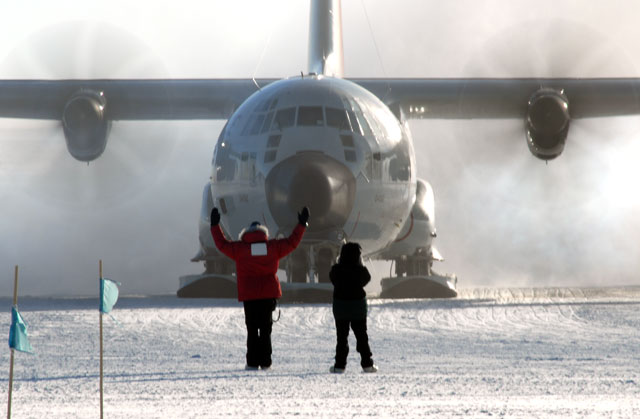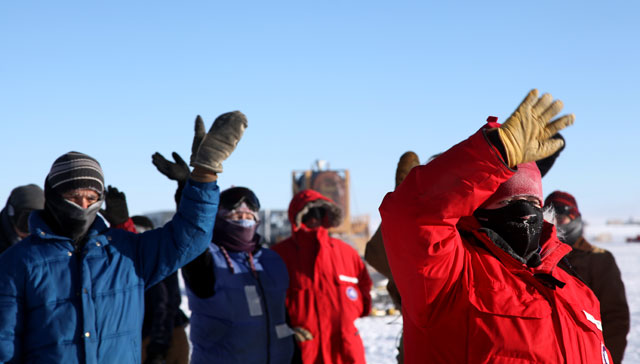Last flightSouth Pole Station settles in for another winter seasonPosted February 17, 2012

Photo Credit: Sven Lidstrom
The last LC-130 aircraft at South Pole Station for the 2011-12 field season as it taxis on an ice runway.
South Pole Station |



For USAP Participants |
For The Public |
For Researchers and EducatorsContact UsU.S. National Science FoundationOffice of Polar Programs Geosciences Directorate 2415 Eisenhower Avenue, Suite W7100 Alexandria, VA 22314 Sign up for the NSF Office of Polar Programs newsletter and events. Feedback Form |


